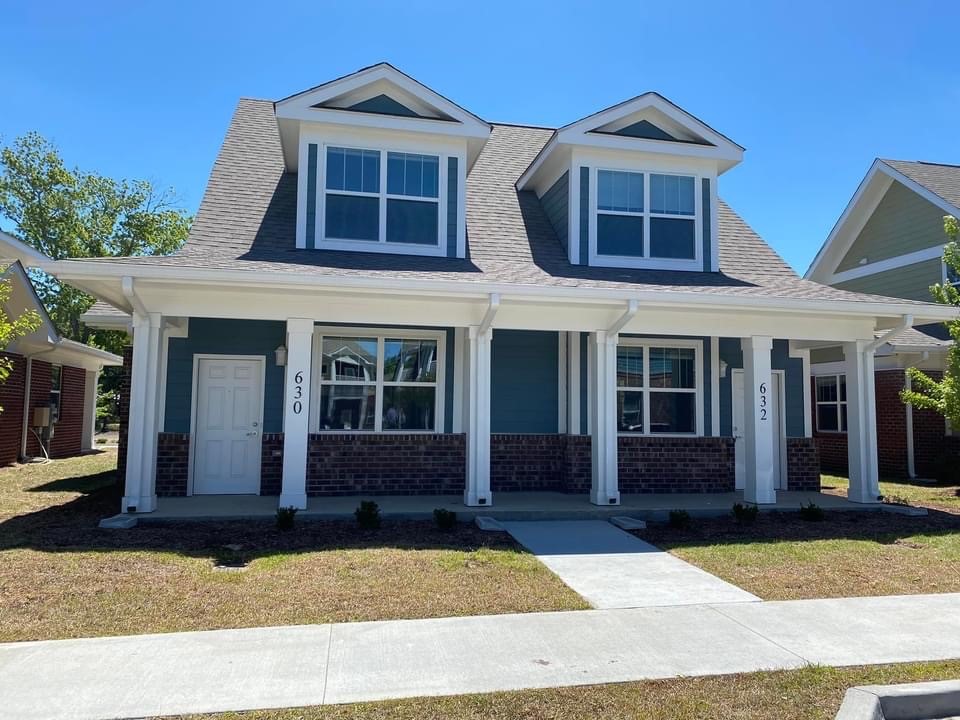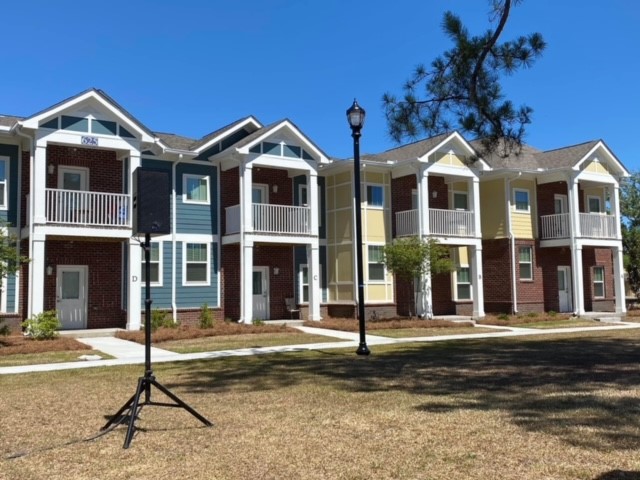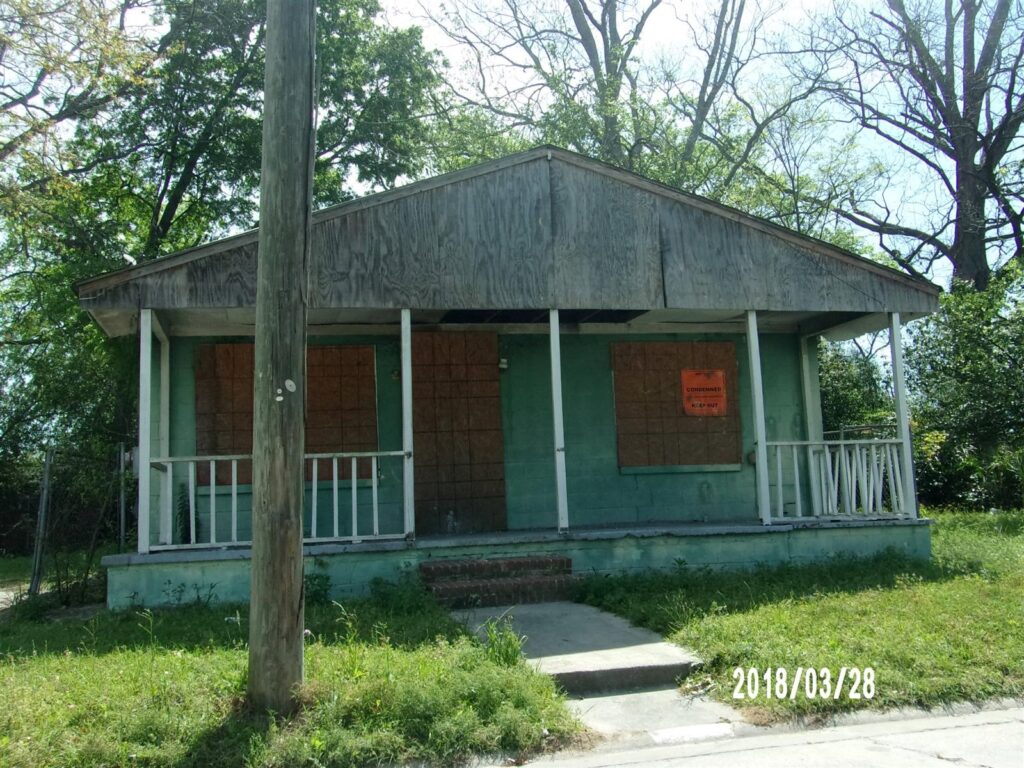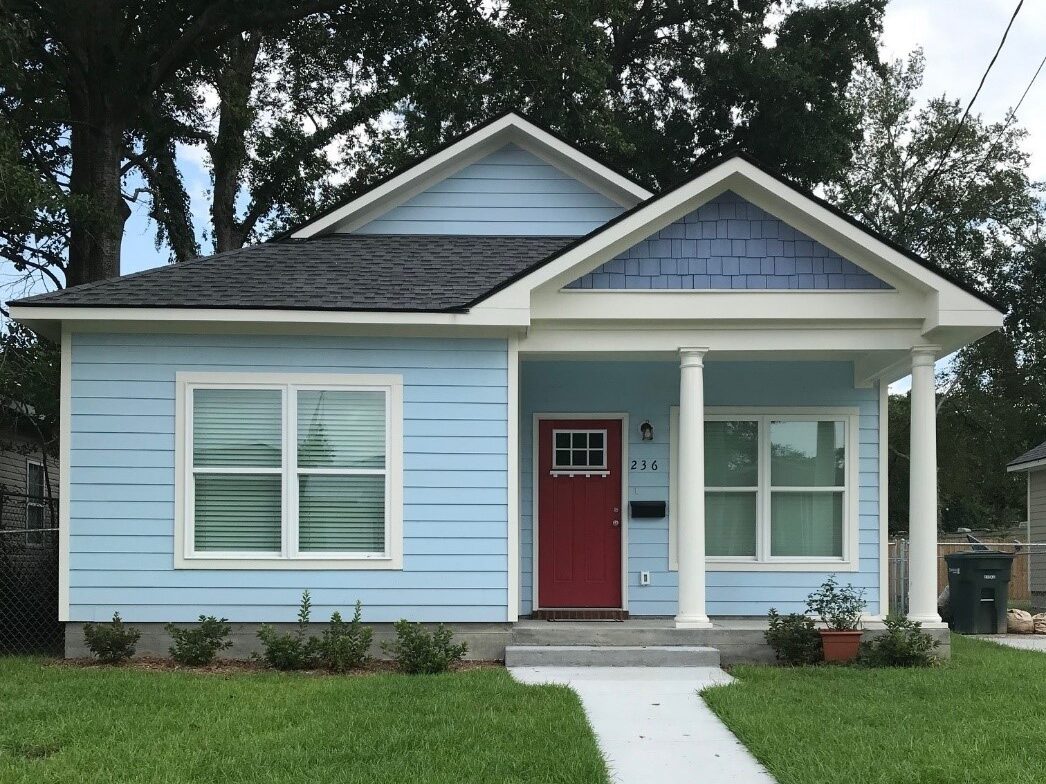Topic(s): Land Banks
Leaders in Land Banking: A Conversation with the Directors of the Savannah-Chatham Land Bank Authority and Omaha Municipal Land Bank
May 2, 2023
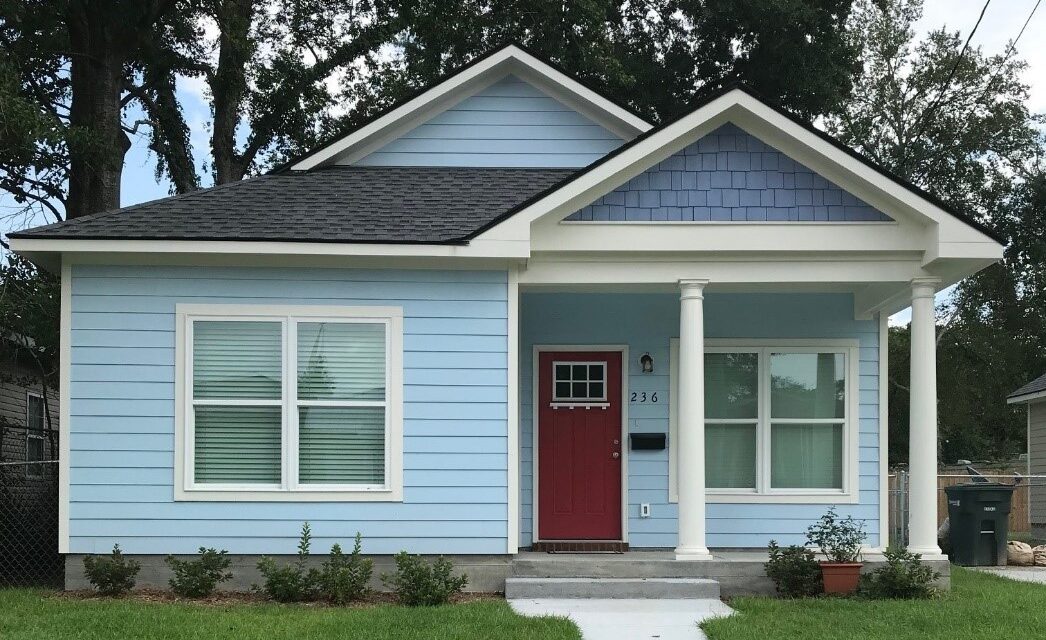
We sat down with Alison Goldey, director of the Chatham County/City of Savannah Land Bank Authority, and Leslie Smith, director of the Omaha Municipal Land Bank, to talk about the challenges land bank leaders share and the experience of adapting to running a land bank in a new city.
Thank you both for taking the time to talk with us today! Can you share a bit about yourself, your land bank, and how you got into this work?
Alison: I have been land banking for twenty-six years. When I moved back to Macon, Georgia and interviewed for an open job for the director of the Macon-Bibb County Land Bank Authority, I wasn’t quite sure what I’d be doing, to be honest. In those early days, there wasn’t exactly a Google to ask “what is a land bank authority.” The board said I’d be buying properties that were abandoned and tax delinquent and selling them to developers to turn into affordable housing. I said I’d give it two years and ended up being there for about twenty-two instead.
When the director of the Chatham/Savannah Authority retired, I had the opportunity to take his place. Given that Savannah was getting ready to start a big blight project, that was exciting to me.
Leslie: Most of my career has been about public service. I got my start in local government in Memphis, Tennessee, which is where I developed my love of working with my community and driving generational wealth-building. Through this work, I got involved in contributing to the development of regional plans in the Memphis area, building relationships with local community development corporations and policymakers, and learning what the community needed in terms of housing and blight elimination. I developed a reputation for finding solutions and as a result stepped in to lead the Blight Authority of Memphis. There were a lot of challenges, which the Center for Community Progress helped us navigate, and it was helpful to be a part of the National Land Bank Network (NLBN) as it was starting up to connect with our peers around the country and learn what they’d been doing. I am where I am now, leading the Omaha Municipal Land Bank, in large part due to the networking opportunities I got through the NLBN.
What have been some of your biggest challenges in running a land bank so far?
Leslie: Well, I’ve had this role for all of two months! (laughs) I don’t think I’ve fully arrived, yet, but one challenge is the translation jump across state policy, legislation, and even philosophy of approach. The approach of the Blight Authority of Memphis was around eliminating blight, while the approach of the Omaha Municipal Land Bank is addressing the affordable housing gap. It’s key to understand and adhere to what the community needs are. Beyond adapting to the newness of it all, one of the key challenges is getting more support on compliance monitoring and making sure that developers are doing what they promised with the land purchased from the land bank.
Alison: The biggest challenge for us—and really for every land bank across the state—is how to meet our mission and goals with limited capacity and funding. When I started out, there was no line-item in the budget for acquiring properties. People assumed that we’d get property donated to us, but in the twenty-six years I’ve been doing this, I’ve seen less than twenty donations—everyone wants something for their property. In Macon, the way our land bank was able to get a foot in the door was by being project-focused and brokering relationships with other organizations that had access to funding and capacity. We were provided free office space from the housing authority, funding from the city, and tapped into funding from other agencies such as the urban development authority.
You’ve both experienced a transition going from one land bank to another. Can you talk more about what you’ve learned from that experience?
Alison: My biggest hurdle was that I had been in Savannah less than a year when COVID hit. So, I couldn’t get out there and meet people and develop the relationships I needed to make. I think it’s also important for us to talk about the need to continue to explain what we do because land banks are still relatively young. While we’re a bigger part of the picture in Savannah now than we were before, we still have to educate so many different people on all different levels about the purpose of a land bank, whether that’s the mayor or whether that’s Ms. Ruth who’s lived in the neighborhood for forty years and wants to know why you’re buying that property next to her. We need to explain that we’re here for the right reasons, to help people keep their neighborhoods.
Leslie: The last statement was really powerful. I’ve also come in new in a space where the land bank has struggled with getting the word out in the middle of COVID. Coming into this role, I’ve heard a lot of mistrust of the land bank. It’s important to know that if you don’t take control of your land bank’s narrative, onlookers will define it for you and feed into people’s fears.
As I come on board, I’m making sure we understand our purpose and narrative before we go out into the community. The OMLB team toured the powerful Undesign the Redline exhibit to understand the history of the land we’re working on and the concerns of the people in the disinvested communities we serve. As a result, we’ve been working on changing how we introduce ourselves when we come into communities. We’re not “catalyzing development” because that’s exclusionary—we’re prioritizing the people currently living in their communities and seeing how we can teach them to leverage the land bank as a partner. We’re leveraging partners because, like Alison, we don’t have access to a lot of funding. We’re leaning into property sales outreach by leveraging local realtors who are familiar with neighborhoods, and we’re partnering with neighborhood organizations that already have trusted relationships with our constituents.
What are you most excited for from your respective land banks?
Alison: I’m excited about two things. First, our mayor put together a task force to build a housing plan and strategy in the city, which allocated $10 million to buying 1,000 blighted properties in ten years. For the first time in my career, I have money to buy properties. The challenge is how to get those properties. It’s become harder to buy them at tax sales because developers from all over the country are driving those prices up. So, how do we keep our costs low on acquisition so we can still require developers to build affordable housing without losing money?
This program will also help us address the big challenge of heirs’ property in the city. There are so many heirs’ properties in the neighborhoods where we work. We don’t want to take someone’s property away from their family that wants to stay in the neighborhood, and if that property goes to a tax sale then they’ve got almost no chance to get it back. Now, if the land bank acquires an heirs’ property for the blight program, we’re going to offer heirs the first right to purchase and redevelop that property. We’re also partnering with the city on a program that gives these folks loans to fix up or redevelop these properties so they can stay in their neighborhoods and claim their rightful inheritance.
The second thing I’m excited about is in the last year and a half, we’ve delved into acquiring properties for people who are experiencing homelessness. Instead of selling a property, we’re doing long-term leases at almost no cost to agencies who can put folks in those houses—mostly families with children that are working but have nowhere to live. Those families get to go through a twelve-month program that helps them get back on their feet. We’re also working on a big project where the city is transferring property to the land bank and the land bank will retain ownership, but we’re going to do an assignable lease to a local nonprofit CDFI, CHSA, Inc. that will build forty tiny homes and a resident services center on the property and then transfer that lease to the Homeless Authority here to manage the project and programs for those experiencing homelessness. I’m excited to see us delve into supporting another segment of the population in need of housing.
Leslie: It’s amazing to see how much political support there is for community development in Georgia! At a high level, I’m really excited about the level of attention land banks across the country are getting. Back when I started, policymakers knew little to nothing about land banks. Since then, the awareness of land banks has increased dramatically. Other cities are seeing the power of a land bank to stimulate their local economies. They see that they don’t have to accept systemic disinvestment. Just that level of knowledge helps us make our case and build a supportive ecosystem of funders to move the needle.
The other thing I’m excited about is working with this team, including the staff, board, partners, and broader networks of vendors. Because I can trust my team to help get us to where we’re trying to go, I have confidence that the Omaha Municipal Land Bank is ready for the next level, which looks like broadening our reach to move towards strategic acquisition activity and helping remove barriers to development in these disinvested communities. We’ve received a $1.25 million award to do site preparation work that will make it possible for us to address properties that would otherwise be impossible to sell. Some properties we own are in such poor shape that in order for it to make financial sense to put a home there requires jumping over significant hurdles. By removing those barriers with this award, we’ll be able to incentivize development with a key focus on affordable housing. We need affordable housing all over the country and especially here in the Midwest, and I can’t say that enough.
Leaders in Land Banking is a new conversation series with land bank leaders who are working on groundbreaking policies and practices to further the impact land banking can have on addressing vacancy.
Are you a land bank leader who wants to show off the great work at your land bank? Reach out to Brian Larkin, Director, National Land Bank Network at [email protected].
Subscribe to join 14,000 community development leaders getting the latest resources from top experts on vacant property revitalization.

